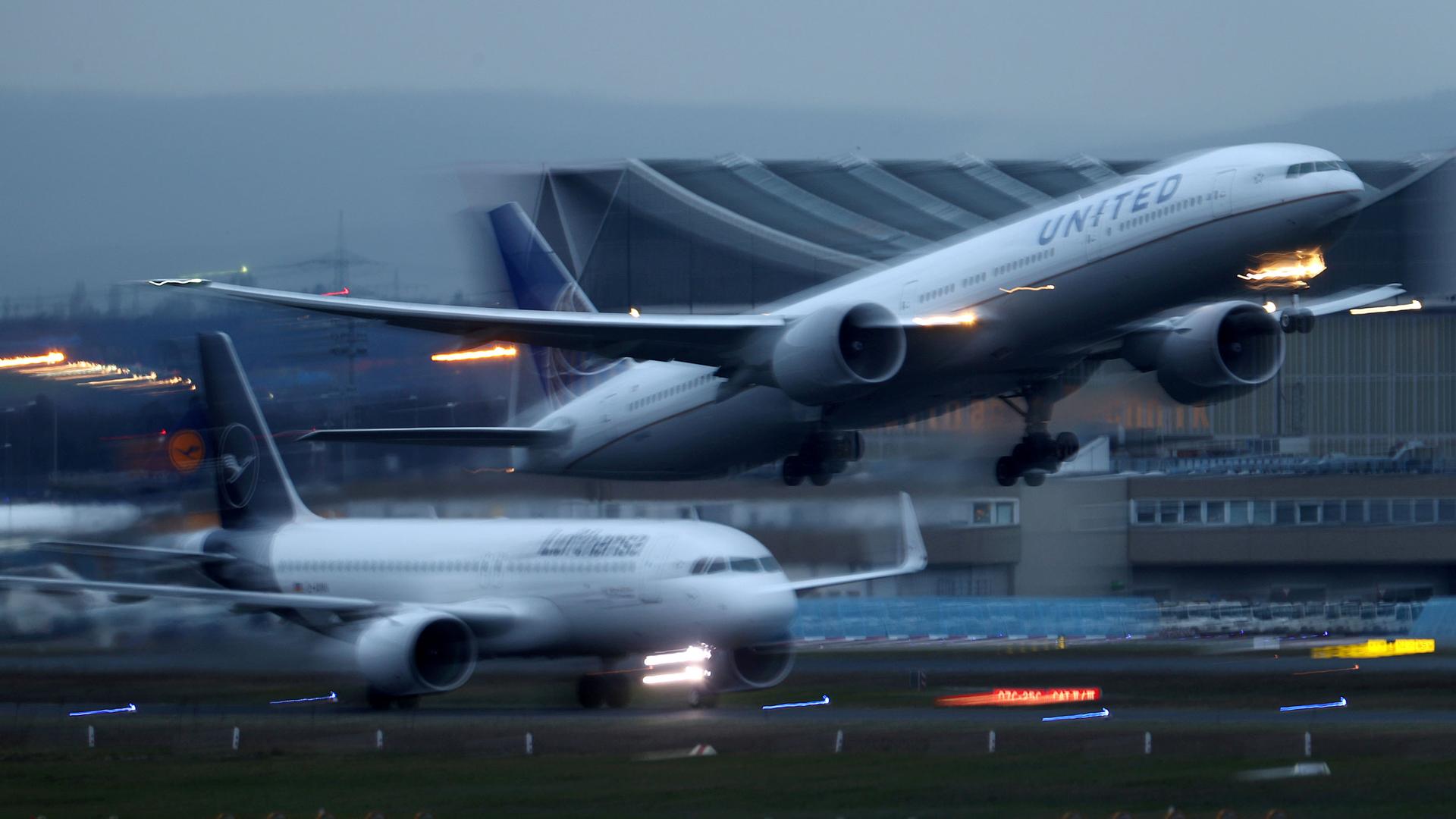Airlines on Thursday appealed for urgent government financial support as transatlantic carriers rushed to cut flights in the wake of new US travel restrictions on Europeans aimed at combating the novel coronavirus outbreak.
The International Air Transport Association (IATA), a global industry group representing airlines, called on governments to consider extending lines of credit, reducing infrastructure costs and cutting taxes.
“Without a lifeline from governments, we will have a sectoral financial crisis piled on top of the public health emergency,” said IATA Director General Alexandre de Juniac.
US airports told the White House they expected to lose at least $3.7 billion this year — an estimate made before the latest European restrictions.
The impact of COVID-19 had also led some airlines to fly “ghost” planes — without passengers — in order to hang on to valuable takeoff and landing slots at the world’s busiest airports.
“Airlines say, to their defense, that they’re forced to do this,” said Sally Gethin, an airline industry expert, “that they have to use slots which are basically times for takeoff or landing at least 80% of the time or they could get penalized by the regulators and have to give them up.”
Gethin spoke with The World’s host Marco Werman about the impact of the coronavirus on the aviation industry.
Marco Werman: So, the cost of losing the slot versus the cost of flying a plane with no passengers: I mean, have they crunched the numbers?
Sally Gethin: Yes. Being able to operate out of an airport which is in high demand — obviously that has a huge impact on their revenues. Clearly, if they don’t keep those slots, then that throws into jeopardy their entire network.
So, now the restrictions that encouraged empty or near-empty flights, have those been lifted?
This week, the FAA has announced that it will be suspending the usual slot rules, as they’re known, for the next several weeks through the end of May.
So, we’re seeing extreme pressure for the airline industry all over the world. Are there destinations that airlines have just kind of shut down at this point?
At the moment, it is the worst crisis ever, possibly, since 9/11. Regardless of suspending this slot rule, they are still in dire straits, arguing for tax relief and other forms of subsidies to be able to allow them to be sustained through this crisis period.
The 9/11 flights were just down for several days, and then it was kind of like a slow comeback to the airport. This coronavirus thing could last — nobody knows — but at least a couple more months. What does that mean for the industry?
IATA, which is a big, international airline industry body, has previously said that it anticipates at least $113 billion wiped off airlines’ finances. And that was before the measures that we’ve seen happen this week — the president’s travel ban on most European nations except for the UK. So, the downside for airlines is they have to have a lot of cash reserves, for example, to weather these storms. And it’s inevitable, I believe, that we will see a number of airlines lose out and possibly fail altogether.
And these are uncharted waters. I mean, those prognoses could be way off.
Yes. And I think that the longer this goes on, the more likely it is that air travel as a whole, and the aviation industry as a whole, will consolidate and shrink and go back possibly years in terms of the traffic that we’ll see.
I’m just curious, what do the flagship carriers of two of the worst-hit countries, Italy and South Korea, look like? Alitalia and Korean Air?
Well, at the moment and I’m speaking from London, there are no flights in and out of Italy at present. In Asia Pacific, where the coronavirus began, airlines are also in a very poor state at the moment. China is starting to come out of this, but there was, again, almost a freezing of all air travel at its height. And in Europe, countries seem to be falling like dominoes in terms of the strategies put in place. So, I think really airlines, they are really, really worried and have described it as a massive catastrophe.
This interview has been edited and condensed for clarity. Reuters contributed reporting.
Our coverage reaches millions each week, but only a small fraction of listeners contribute to sustain our program. We still need 224 more people to donate $100 or $10/monthly to unlock our $67,000 match. Will you help us get there today?
